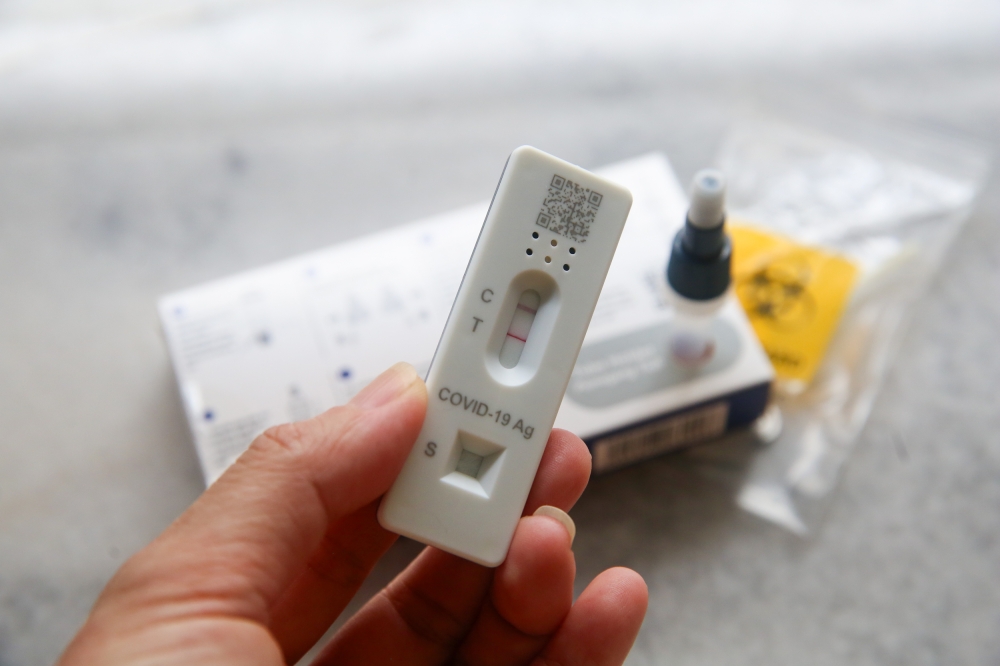KUALA LUMPUR, May 16 — Caught Covid-19 in 2025? With the disease now considered endemic and the rules eased, many may be wondering what to do next.
On May 1, the government officially revoked the declaration that classified all states and federal territories as infected local areas — a move marking the country’s shift away from emergency pandemic measures — more than five years after it was put in place.
Still, Covid-19 has not been entirely eradicated.
Ministry of Health (MOH) data shows a slight uptick in active cases, rising from 8,488 on April 30 to 8,609 by May 3.
For comparison, during a similar period last year — May 12 to 18, 2024 — Malaysia recorded 1,230 Covid-19 infections.
Experts attributed this year’s rise to waning immunity, increased travel, and reduced testing, but say the situation in Malaysia remains under control and is not a cause for alarm.
However, neighbouring countries like Thailand, Singapore and Taiwan have reported larger surges, with some recording tens of thousands of infections and several deaths in recent weeks.
So what should you do now if you catch Covid-19?
Since July 15, 2024, individuals who test positive for Covid-19 are no longer required to undergo a Home Surveillance Order (HSO), and reporting through the MySejahtera app is no longer necessary.
According to Professor Dr Sharifa Wan Ezat Puteh, a health economics and public health specialist in Universiti Kebangsaan Malaysia (UKM), most new infections are less severe than before and do not result in the patient being intubated or having respiratory failure.
“Many would present as URTI (upper respiratory tract infection) and mild symptoms only,” Dr Sharifa told Malay Mail.
“This would be due to vaccinations and/or acquired immunity to full or partial infections,” she said.
However, Dr Sharifa said individuals with weakened immune systems — such as the elderly — may need to see a doctor, as they could require antivirals and supportive care.
She added that those presenting with URTI symptoms need to be tested to rule out influenza.
What are the current treatments?
According to MOH’s clinical practice guidelines, Covid-19 patients classified under categories 2 and 3 are eligible for treatment with the antiviral medication Paxlovid.
Former president of the Malaysian Association of Public Health Physicians Datuk Dr Zainal Ariffin Omar said tests can still be taken at clinics or self-test, following the same standard operating procedures.
“Covid-19 antigen rapid test kits are still available at pharmacies,” he said when contacted.
While not mandatory, he encouraged wearing a face mask, especially when experiencing symptoms like a cough or cold, or when visiting crowded healthcare facilities and poorly ventilated spaces.
Should Malaysians worry about the surge of cases in the region?
Despite low concern over Covid-19, several Asian countries saw a resurgence of cases in the first quarter of the year.
However, Dr Sharifa said unless there is a new Covid-19 variant that is also virulent and pathogenic, Malaysians do not need to worry about this.
“Most are vaccinated and boosted,” she said.
In Thailand, from January to May 10, the country recorded 53,676 cases and 16 deaths from the disease.
Bangkok alone reported 16,723 positive cases in the week between April 27 and May 3, though the number dropped to 12,543 the following week.
Over in Singapore, the number of Covid-19 cases rose from 11,100 to 14,200 cases in the week from April 27 to May 3.
In Taiwan, Covid-19 related cases reached 10,000 in the week from May 4 to May 10, with six deaths and 34 severe cases reported in the first week of May.

